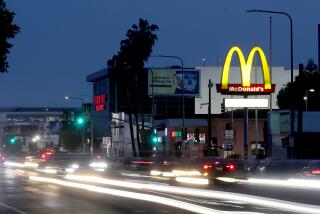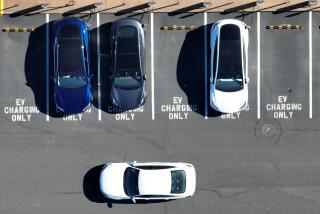Skinner Says Fuel Economy Bill Could ‘Destroy Auto Industry’
- Share via
WASHINGTON — Transportation Secretary Samuel K. Skinner said Tuesday that legislation to sharply increase automobile fuel economy “could literally destroy the auto industry” and that he will urge President Bush to veto it if it is passed.
Skinner told a news conference that the Administration believes that the U.S. auto industry will recover from its current economic hard times only if the fuel economy bill does not become law and if credit is eased.
Skinner said auto makers report that many of their suppliers are having loans and lines of credit called by banks acting “out of an abundance of caution.”
He said the automobile executives, who met privately with President Bush last week, contend that, if their industry is not able to receive credit at reasonable rates, “you will not see the auto industry recover.”
The fuel economy legislation, sponsored by Sen. Richard H. Bryan (D-Nev.), would require auto makers to improve the mileage of their new-car fleets--all the cars they manufacture in one year--by 40% by the year 2001.
The across-the-board minimum fleet average is now 27.5 m.p.g., although some car makers have higher averages. Under Bryan’s legislation, there would be no single standard; all auto makers would have to improve by the same percentage no matter what their current fleet average is.
The bill was approved by the Senate Commerce Committee on a 14-5 vote earlier this month. The same panel approved it last fall, but opponents prevented it from reaching the floor.
Supporters say that it would reduce air pollution and make the United States less dependent on Middle East oil. Foreign and domestic auto makers are strongly opposed to the bill, saying the only way to achieve such drastic improvements would be to downsize their cars and stop selling many family-sized vehicles.
They contend also that smaller cars are less safe.
The bill’s advocates contend it will save 2.5 million barrels of oil a day. But the Bush Administration says the correct figure is closer to 500,000.






